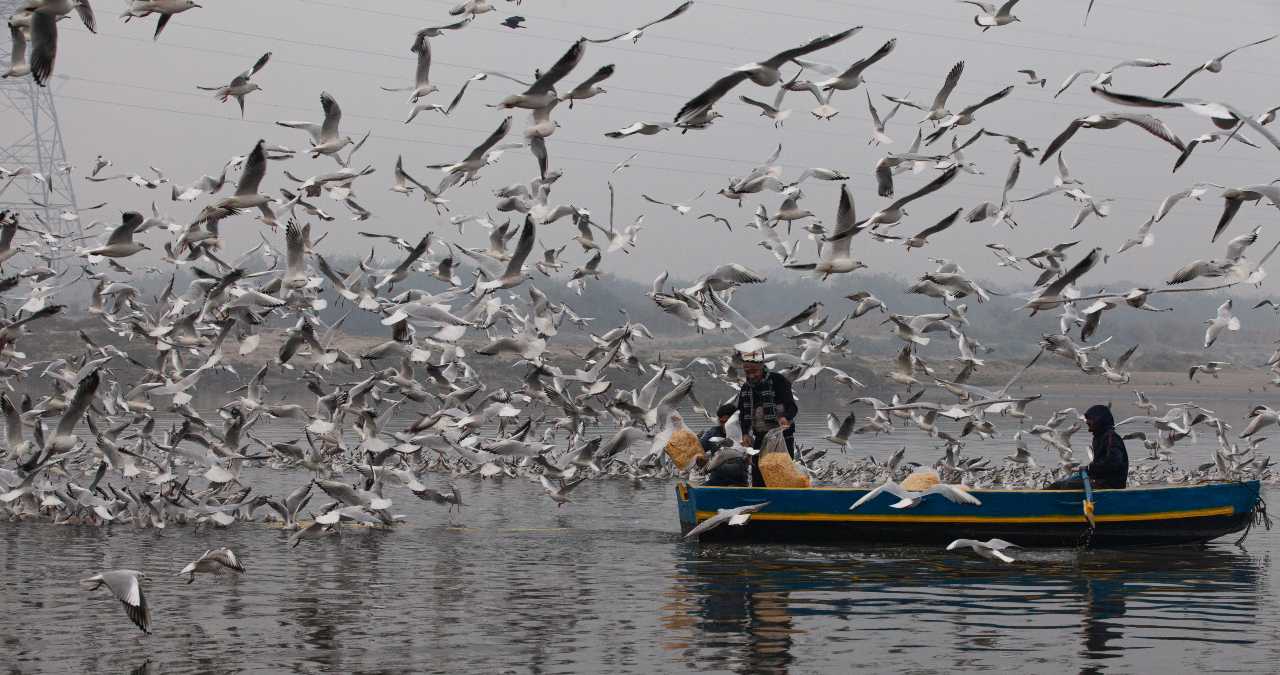Fragile eco-regions require special attention to ensure the preservation of their environment and lifestyle. Confronted with the imperatives of modernity, such places have to often speak louder than others to insure their future. Gurmeet Kaur discusses the region of Ladakh in northern India, and the advocacy by its people for a sustainable future.
Ladakh, with its starkly beautiful landscape meets the resilience of its people in distinct ways. While tourism has gained traction, especially after recent economic reforms, the land of high passes in young-fold mountains remains under threat of environmental degradation.
In securing Ladakh’s sustainable future, Sonam Wangchuk, a prominent figure in the region’s educational and cultural resurgence, has emerged as an important voice, inspiring numerous others. Through his forward-thinking projects and advocacy, he has played a pivotal role in advancing education and environmental preservation, shedding light on the challenges confronting the region.
Who is Sonam Wangchuk?
Sonam Wangchuk, a prominent figure in Ladakh’s education and cultural movement, is dedicated to promoting sustainable initiatives in the region. In 2013, he created the Ice Stupa, an artificial glacier that stores Winter stream-water and releases them in Spring, benefiting local farmers. In 2015, he founded the Himalayan Institute of Alternatives in Leh Ladakh to address the relevance gap in mountain universities. He started ‘Farm Stays Ladakh’ in 2016, enabling immersive experiences for tourists through home-stays with local families. Wangchuk also leads the New Ladakh Movement which advocates for sustainable education, environment and the local economy; and he has undertaken hunger strikes to protect Ladakh’s fragile ecosystem from climate change and industrial exploitation.
The 21-days Fast
Wangchuk undertook fasting as a form of protest to highlight the effects of climate change on Ladakh’s fragile ecosystem and to demand its protection under the Sixth Schedule of the Indian Constitution. His fast was also to press for constitutional safeguards for Ladakh as a Union Territory, and to protect it from industrial and mining lobbies. The demands put forth by him during his fast-unto-death and Climate Fast hunger strike included advocating for Ladakh’s statehood, emphasising the need for separate seats in the Lok Sabha (the lower house in India’s Parliament) for Kargil and Leh, and opposing industrialisation and mining activities in the region.
In response to the demands raised by Sonam Wangchuk and other representatives from Ladakh, the government has taken several steps to address their concerns. This has included, most importantly, the formation of a high-powered committee led by the Minister of State (Home Affairs) Nityanand Rai to specifically address Ladakh’s demands.
*
Despite efforts made by Sonam Wangchuk and others to highlight the pressing issues facing the region on various fronts, response from the government has been criticised for its inadequacy in addressing the demands effectively. As a result, Wangchuk announced a ‘Border March’ on 7 April to draw attention to the ground realities in Ladakh.
Critically speaking, it is apparent that while the formation of a high-powered committee signalled a willingness to engage with Ladakh’s demands, the concrete outcomes of these discussions remain uncertain. The government’s response appears reactive rather than proactive, with assurances and discussions lacking tangible action plans and timelines for implementation.
The mere examination of Ladakh’s inclusion under the Sixth Schedule does not guarantee the implementation of constitutional safeguards and job reservations which are crucial for the region’s development and protection of its unique cultural identity. The delay in addressing Ladakh’s long-standing grievances, such as the question of statehood and representation in the Lok Sabha, reflects a disconnect between the government’s promises and an understanding of the urgency of the situation on the ground.
Moreover, the restrictions imposed on Sonam Wangchuk, including house arrest and prevention from undertaking his planned fast at Khardungla pass in 2023, raise concerns about the government’s commitment to upholding democratic rights and freedom of expression. By curbing dissenting voices and resorting to coercive measures, the government undermines the principles of democracy and inclusive governance.
*
To conclude, while the government’s engagement with representatives from Ladakh is a step in the right direction, the lack of concrete actions and the persistence of systemic challenges indicate a failure to adequately address the region’s needs and aspirations.
Ensuring a sustainable future for Ladakh requires the adoption of a grassroots approach, establishing responsible committees comprising government and civil society stakeholders to oversee, and swiftly address, detrimental practices such as mining and other environmentally aggressive activities. Facilitating civil society consultation, including voices of those like Sonam Wangchuk and others working for the region, can foster comprehensive, long-term strategies to address environmental and other challenges effectively.
There remains a pressing need for genuine dialogue, proactive measures and meaningful reforms to ensure the holistic development, empowerment and sustainable future of Ladakh’s communities. The journey towards that future demands unity, resilience, dialogue, and unwavering dedication.
*
The views expressed here are those of the author and do not represent the views of the ‘South Asia @ LSE’ blog, the LSE South Asia Centre or the London School of Economics and Political Science. Please click here for our Comments Policy.
This blogpost may not be reposted by anyone without prior written consent of LSE South Asia Centre; please e-mail southasia@lse.ac.uk for permission.
Banner image © Vamshi Vangapally, Pangong Tso, Ladakh, 2018, Unsplash.
*







